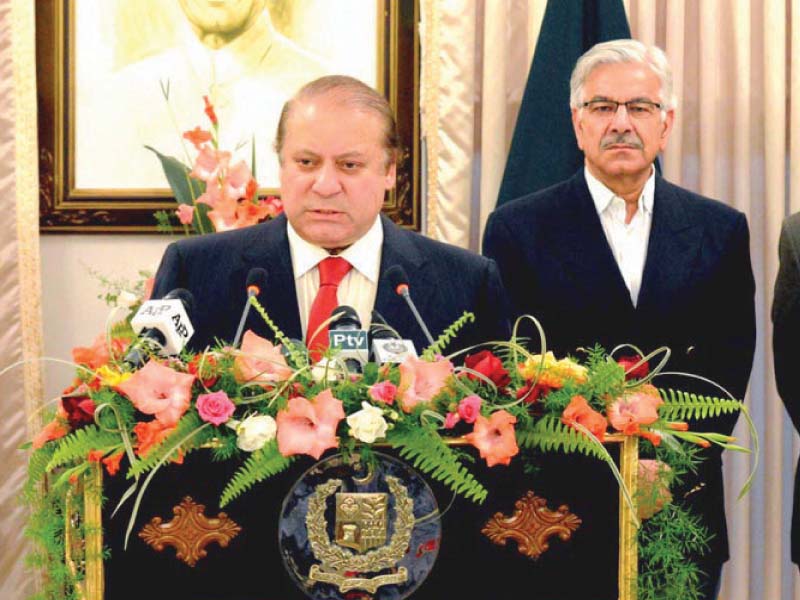
Pakistan on Monday sought to assuage fears of its allies in the Persian Gulf three days after its parliament called for ‘neutrality’ on the widening conflict in Yemen. The move came on the heels of a verbal duel between two cabinet ministers of Pakistan and the United Arab Emirates that threatened to spark a diplomatic firestorm the previous day.
Prime Minister Nawaz Sharif stepped in to save the situation. While clarifying his country’s position on the crisis in the Arabian Peninsula, he said in what was dubbed a ‘policy statement’ that Pakistan “does not abandon friends and strategic partners, especially at a time when their security is under threat”.
The ‘policy statement’ came as Saudi Minister for Religious Affairs Sheikh Saleh bin Abdul Aziz, who flew in on Sunday, began his interactions with Pakistani officials on the Yemen situation and bilateral relations between the two countries.
Just before issuing the statement, the prime minister went into a huddle with his top aides and military brass to brainstorm a response and discuss the emerging situation in the backdrop of a Saudi request for Pakistani troops, ships and jets to join the nine-nation coalition coalesced by Riyadh to stamp out the Houthi rebellion in Yemen.

The Pakistani parliament voted to keep the country out of the Saudi-led coalition but backed the government’s commitment to protect the Saudi territory. This ‘contradictory and ambiguous’ resolution put Pakistan’s Arab allies ill at ease, with UAE Minister of State for Foreign Affairs Dr Anwar Muhammad Gargash calling it “nothing but another chapter of laggard impartial stand” and accused Islamabad of siding with Iran.
The prime minister, however, sought to play down the row, saying that “there should be no doubt about our policy of solidarity with the Gulf Cooperation Council (GCC) states” citing what he called ‘an apparent misinterpretation’ of the resolution.
He faulted the media for speculative reporting that tended to create misunderstanding between Pakistan and its Gulf brothers. “We have not responded to these speculations because we believe that public comments will be counter-productive.”
Sources told The Express Tribune the prime minister’s statement was a kind of assurance to allies in the Gulf that Pakistan was not sitting on the fence. The government continues to follow the policy of fortifying the bond of friendship with the Gulf countries, he said.
Premier Nawaz said that from the very start, Pakistan’s policy on the Yemen conflict was based on a.) importance of Saudi Arabia as one of our most important strategic allies; b.) sanctity of the two holy mosques and full support to their custodians; c.) Pakistan’s long-term commitment to Saudi sovereignty, territorial integrity and stability, the main pillar of our foreign policy, has been pursued by successive governments; and d.) our firm assurance to our Saudi brothers that we shall stand shoulder to shoulder with them.
The parliament’s resolution advised the government not get ensnared into the conflict militarily and work with the UN Security Council and the Organisation of Islamic Cooperation to find a negotiated settlement to the crisis. Islamabad, together with Ankara, has already mounted a diplomatic offensive.
But the prime minister said his country would intensify efforts to find a diplomatic solution. “Pakistan will intensify its diplomatic efforts in the coming days, in consultation with the leadership of Saudi Arabia, to resolve the crisis,” he said.
In the same breath, however, he added that the restoration of Yemeni President Abedrabbuh Mansour Hadi’s government, overthrown by Houthi rebels, would be an “important step forward towards establishing peace”.
The Saudis have rebuffed calls for an immediate ceasefire and vowed to bomb the Houthis into surrendering arms. Sources said that by endorsing Riyadh’s call for President Hadi’s reinstatement and disarming the Yemeni rebels Islamabad has clearly taken side with the Saudis and quashed the impression that Pakistan was ‘neutral’ in the conflict.
The prime minister said that the Pakistani parliament strongly condemned the actions by the Houthis and other non-state actors to overthrow the legitimate government in Yemen; expressed serious concern at the rapidly deteriorating humanitarian situation; and underlined the urgent need for finding a peaceful solution of the crisis through dialogue.
The resolution also affirmed that any violation of the Saudi territorial sovereignty or threat to the two holy mosques would evoke a strong response from Pakistan. “This assurance had been given despite the massive commitment of our armed forces in the ongoing Operation Zarb-e-Azb, in which hundreds of our brave soldiers had laid down their lives.”
Through the ‘policy statement’ the prime minister also sought to dispel the impression that Islamabad was siding with Iran whose Foreign Minister Mohammed Javad Zarif visited Islamabad for talks last week, according to sources.
Nawaz said that he has warned the Iranian foreign policy wizard that the overthrow of Hadi’s “legitimate government in Yemen... had set a dangerous precedent that was fraught with serious risks for the entire region”. He added that he had urged Zarif to use Iran’s influence to bring the Houthis to the negotiating table.
Published in The Express Tribune, April 14th, 2015.

















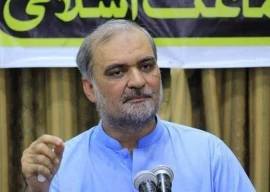

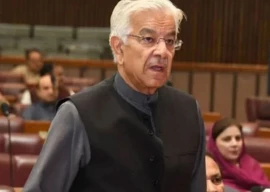
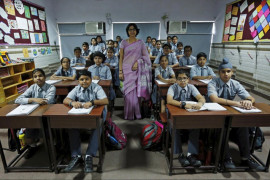
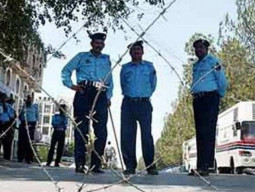










1714024018-0/ModiLara-(1)1714024018-0-270x192.webp)










COMMENTS (1)
Comments are moderated and generally will be posted if they are on-topic and not abusive.
For more information, please see our Comments FAQ